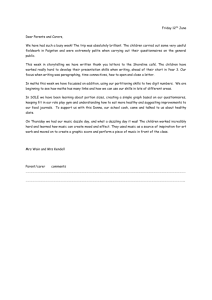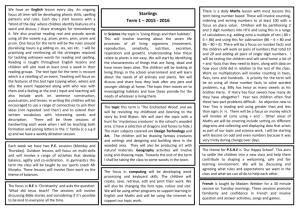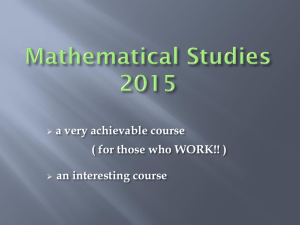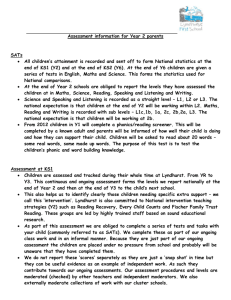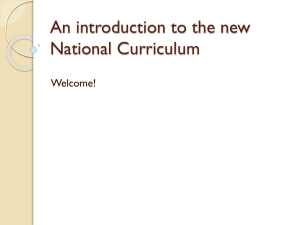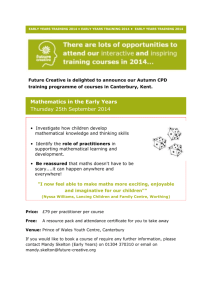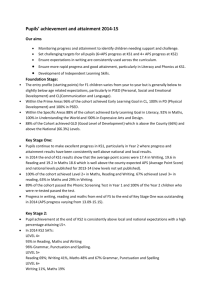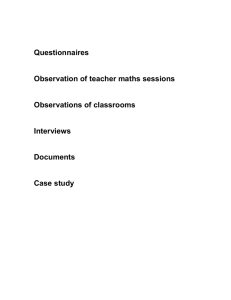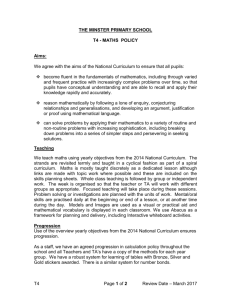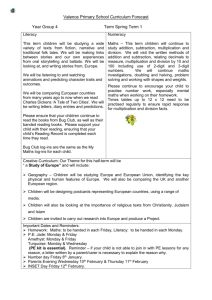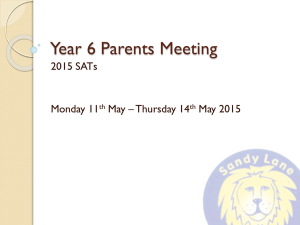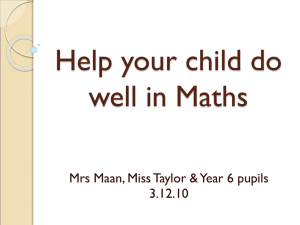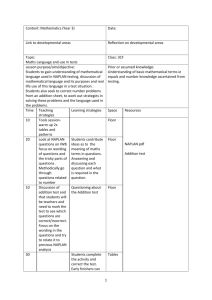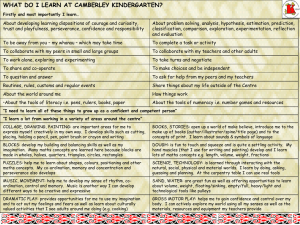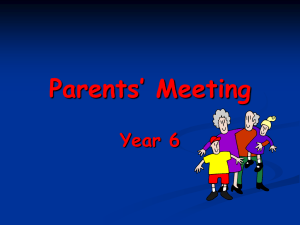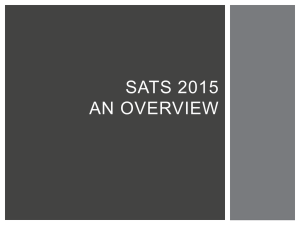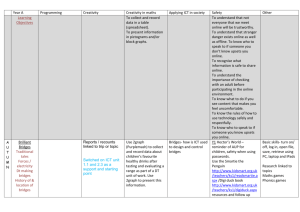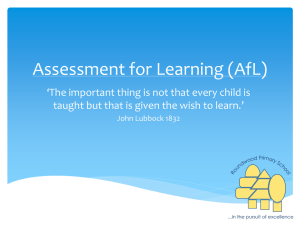Year 1 & 2 Powerpoint Presentation
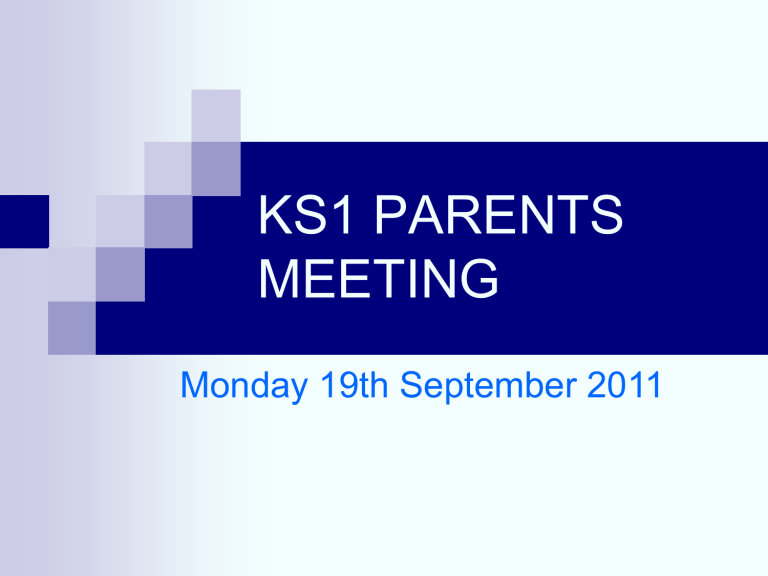
KS1 PARENTS
MEETING
Monday 19th September 2011
BEFORE YEAR 1
The children learn through play.
Short whole class sessions.
One to one or very small group work.
Profile points to assess.
Transition
To bridge the gap between Reception and the formalities of KS1.
Mainly focussed practical activities, with an emphasis on developing mathematical, writing, reading and social skills.
Encouraging independent working and sustained periods of concentration.
IN YEAR 1
Encouraging independence and formal working.
Sitting at own desk.
Working more independently.
Following a set of instructions.
Moving to National Curriculum levels.
END OF YEAR 1 EXPECTATIONS
Children are expected to achieve a 1a in writing, reading and maths.
Our aim is a significant number of children should exceed this.
YEAR 2
Organisation
Homework
Independence/using initiative
Good role models
END OF KS1 EXPECTATIONS
Year 2 children are expected to achieve a
Level 2b in writing, reading and maths.
Our aim is a significant number of children should exceed this.
WRITING in Year 1
Use phrases and simple statements to convey ideas.
To be able to use some appropriate choices of vocabulary.
To write simple and more complex sentences, using connectives ‘and’ ‘then’.
To be able to correctly use capital letters and full stops in
their writing.
To be able to use a range high frequency words.
In handwriting, all letters are clearly shaped and correctly orientated.
WRITING in Year 2
To be able to write for a variety of audiences and purposes.
To be able to write more complex sentences using a variety of connectives, such as and, but so etc.
To be able to use accurate punctuation including commas, exclamation marks and question marks.
To make use of their developing vocabulary and often choose to use subject specific topic words, or more interesting words choices they have acquired from reading.
Handwriting should be legible and of a consistent size.
READING in Year 1
To use their knowledge of phonics to make plausible attempts at unknown words.
To be able to use other strategies.
To be able to comment on ideas and events in a story and ask and answer questions.
To be able to re-tell the story in their own words and to ask and answer questions based on the text.
READING in Year 2
To be able to read most of an unfamiliar text independently with understanding.
To be able to read for meaning.
To be able to make predictions.
To be able to comment on events, plot, setting, characters and the presentation of information.
To engage in discussions regarding any text – giving their own opinions.
To read a wide variety of texts.
Encourage visits to the library.
MATHS in Year 1
To be able to read, write, order and count the numbers up to 30 and beyond.
To be able to add or subtract to 10 and above with the aid of apparatus.
Mentally add and subtract 1 from any number to at least 10 including money and measures.
Developing mathematical language.
Read o’clock and half past on an analogue clock.
MATHS in Year 2
Children can discuss and explain every day maths activities using mathematical vocabulary.
To be able to count on and back in steps of 2, 5 and 10 to and from
100.
To use mental and written calculation strategies to solve number problems involving money and measures.
To be able to halve and double numbers.
To know their times tables.
To understand the relationship between addition and subtraction, multiplication and division.
Practical problem solving, involving time, money and measures.
HOW YOU CAN HELP
Encourage your children to discuss their learning at school.
Read a variety of texts to and with your children – not just school books!
Ensure homework is completed to a high standard.
To continue to practise areas of difficulty that your child may be experiencing.
Make each home learning experience enjoyable!
Listening and concentration games.
